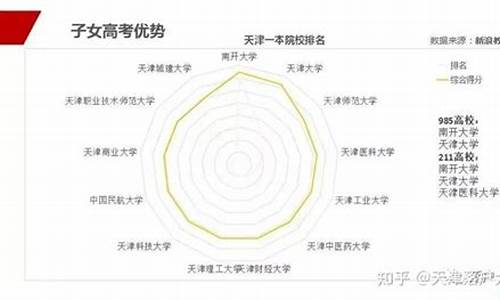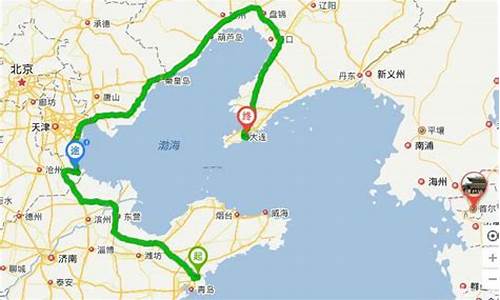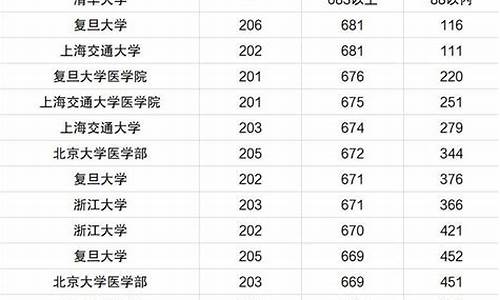您现在的位置是: 首页 > 教育新闻 教育新闻
英语历届高考作文_英语历届高考
tamoadmin 2024-07-04 人已围观
简介1.2023全国高考英语有哪些卷2.高三英语题(about历届高考题)3.近五年高考英语全国1卷百度云?4.英语短语5.高考英语语法填空必背知识6.2011高考英语的试卷和答案 全国卷17.高考英语总分多少分?天津高考提供两次考试机会缓解考生心理压力。自2010年开始,本市积极探索实施高考英语听力同场两次考试,有效降低了偶然因素对考生应考的影响,并为高考英语笔试实行“一年两考”积累了经验。在天津,
1.2023全国高考英语有哪些卷
2.高三英语题(about历届高考题)
3.近五年高考英语全国1卷百度云?
4.英语短语
5.高考英语语法填空必背知识
6.2011高考英语的试卷和答案 全国卷1
7.高考英语总分多少分?

天津高考提供两次考试机会缓解考生心理压力。自2010年开始,本市积极探索实施高考英语听力同场两次考试,有效降低了偶然因素对考生应考的影响,并为高考英语笔试实行“一年两考”积累了经验。在天津,英语科目从2022年开始每年考两次,第一次考试安排在每年的3月份。到目前为止,已经取得了良好的效果。天津市教育招生考试院公布,每一届毕业生均有两次考试机会。一次考试机会是每年的三月份,第二次考试机会是每年的六月份。
2023全国高考英语有哪些卷
08年陕西高考英语作文
书面表达(满分30分)
某天,你班贴出了一张通知,请根据通知、内容要点和要求写一篇英文发言稿。
内容要点:
1、你对“周五读报活动”的看法; 2、陈述你的理由(可举例说明); 3、你的具体建议。
要求:
1、短文须写在答题卡的指定区域; 2、短文词数不少于80(不含已写好的部分);
3、内容充实,结构完整,语意连贯; 4、书写须清晰、工整。
Dear fellow students,
Our monitor suggests that we have “Friday New Hour”. I think
____________________________________________ _
范文:
Our monitor suggests that we have “Friday New Hour”. I think that it is a good idea.
Everyone knows that we are busy all day. Seldom do we know what is happening both at home and abroad, let alone what we can do for our country. By reading newspapers we can get more information about the world outside. So I think “Friday New Hour” can broaden our mind and enrich our school life. What’s more, it will help us improve our reading skills.
As for my suggestion, I think it’s better to have it twice a week. And we should make a choice about what we’ll read. I am sure everyone will benefit a lot from this activity.
09年陕西高考英语作文
学生和母亲之间的关系问题(一位叫Grown-up的网友觉得母亲总把自己当小孩,求助其他网友给些建议看怎样解决这个问题)
Dear Grown-up ,
I have read about your complaint that your mother always treats you as a seven-year-old boy , which makes you feel uncomfortable because you will enter college this coming fall. As to your problem, I have several suggestions to put forward as follows.
To begin with(Initially), you should try to understand your mother, whose intention is to care for you. Just as a famous person says, “Nothing can compare with the love from mother.” In addition (Apart from this), communicating properly with your mother contributes to solving the problem. The more you communicate with her, the better you will understand each other. Finally, it is encouraged to resort to your friends or classmates when you have quarrel with your mother.
I do hope what I mentioned above can help you. Only by doing so, can you be friend with your mother soon. Do you agree with me?
Yours
Li Hua
2010年陕西高考英语作文
假定你是李华。你们学校和一所美国中学签署了教师交流协议。在过去的一年里,你的英文老师是来自这所中学的Sue Wood。不久前她返回美国任教。请你根据写作要点和要求给Sue写封电子邮件。
写作要点:
1.对她表达感谢之意
2.介绍她离开后你自己及班级里发生的事情
3.希望了解她的近况
要求:
1.词数不得少于100
2.内容充实,结构完整,语意连贯
3.开头已给出
Dear Sue
I'm Li Hua,one of your students in China............
范文
Dear Sur,
I'm Li Hua, one of your students in China. It's almost a month since you left us. We all miss you and are very grateful for what you did for us.
We are busy as usual. We had an English speech contest the other day. I won the first prize! This again reminds me of all your kind help. Do you still remember the trees we planted together on the hill behind the school? Yesterday, we went there and watered them. The tree you planted yourself is growing well, and the whole class decided to name it Sue Wood. Will you come back to see Sue Wood?
How is everything with you lately? We hope to know more about you and your American students. Hope to keep in close touch.
All the best
高三英语题(about历届高考题)
2023全国高考英语有四套卷子:
1.全国Ⅰ卷:(1)题型:听力、阅读理解、完形填空、任务型阅读、写作。(2)特点:难度适中,题目涵盖各个知识点,注重考察基础能力和语言运用能力。
2.全国Ⅱ卷:(1)题型:听力、阅读理解、完形填空、任务型阅读、写作。(2)特点:相较于全国Ⅰ卷,题目难度适中偏难,注重考察学生对语言学的理解和应用能力。
3.全国Ⅲ卷:(1)题型:听力、阅读理解、完形填空、任务型阅读、写作。(2)特点:相较于全国Ⅰ卷和全国Ⅱ卷,难度较高,注重考察学生的综合语言运用能力和思维能力。
4.全国Ⅳ卷:(1)题型:听力、阅读理解、完形填空、任务型阅读、写作。(2)特点:在难度上与全国Ⅲ卷相当,但题目设计上更加注重综合素质的考查,如语言推理、文化背景等。
扩展知识:
高考英语难不难?一般,相较于其它科目,英语是高考所有科目中最简单的。高考英语试题总体上感觉还行,比起平时的模拟考试题目,要难一点点,但整体差别不大。其中完形填空有点烧脑,阅读理解难度适中,极个别的选项会比较抽象,需要推理。
短文改错,也挺中规中矩的,都是平时考的常见的语法类型。生词比平时的考试多一些,但是对于英语成绩好的考生,是可以推理出该词的意思。
其实高考时,这门学科也存在或多或少的套路问题,你需要做的就是在反复不断的做题当中,摸清出题人的思路,进而做到,不丢分拿。因此这就需要你在考前复习的时候,使用题海战术,不断的去做题去找感觉,当然也可以听老师讲的。
高考英语卷子的设计是根据教育部对于英语教学大纲和考试大纲的要求来制定的,旨在全面考察学生对英语知识的掌握和应用能力。
高考英语的听力部分主要考察学生的听力理解和答题技巧,通过听力材料进行多种类型的听力测试。
阅读理解部分要求学生理解、分析和解答与文章内容相关的问题。
完形填空部分考察学生对文章整体意思的理解和对语篇结构的把握。
任务型阅读部分侧重于学生对文章细节的理解和运用能力,要求学生根据所给材料完成一系列任务。
写作部分要求学生运用所学的语言知识和写作技巧,完成一个有一定主题和要求的写作任务。
近五年高考英语全国1卷百度云?
1. 考查的是 祈使句+and+句子, 这这种句型可以改写为IF
从句. 如:
Go ahead, and you will find the post office.
→If you go ahead, you will find the post office.
2. \"面对\"可以用 be faced with sth (被动)
也可以用 face sth (主动)
如果题中没有\"with\" 就用 facing.
3. Have sth ready 意思为准备好, 要去面试了,当然是
现在准备了. to have 是将要准备,说明还没准备.不
好. to have had就更不好了.
4. 我帮你查了, 应该选C , 可能是你听错了.
意思为: 当警察问他时, 他说他只记得去了那次聚会,
但不记得回来了.
*: 都是已经发生的动作, 用V-ing
5. 这里的\"paid\"修饰 vacation
奖励是30,000美元外加去中国的免费(所有费用已付了
的)假期.
*: all expenses paid 所有费用已付
英语短语
2019年高考英语全国1卷(附答案) 53高考英语pdf百度云
中小学试题|家庭教育题库|辅导习题「中国戏曲学院附属中等戏曲学校」来源: 22:16文科综合?447 ℃53高考英语pdf百度云<mip-img src="/uploads/image/0700.jpg" "="" class="mip-element mip-layout-container mip-img-loaded" mip-firstscreen-element="" style="box-sizing: border-box; margin: 0px; padding: 0px; display: block; width: 500px; font-size: 0px; position: relative; height: 500px;">
学校:____________________? _______年_______班 ? 姓名:____________________? 学号:________
l -? -? -? -? -? -? -? -? 密封线? -? -? -? -? -? -? -? -? -? 密封线? -? -? -? -? -? -? -? -? -
绝密★启用前
2019年普通高等学校招生全国统一考试
英 语 全国I卷
(全卷共12页)
(适用地区:河北、河南、山西、山东、江西、安徽、湖北、湖南、广东、 福建)
注意事项:
1.
答卷前,考生务必将自己的姓名、考生号等填写在答题卡和试卷指定位置上。
2.
回答选择题时,选出每小题答案后,用铅笔把答题卡上对应题目的答案标号涂黑。如需改动,用橡皮擦干净后,再选涂其它答案标号,回答非选择题时,将答案写在答题卡上,写在本试卷上无效。
3.
考试结束后,将本试卷和答案卡一并交回。
第一部分? 听力(共两节,满分30分)
做题时,先将答案标在试卷上。
录音内容结束后,你将有两分钟的时间将试卷上的答案转涂到答题卡上。
第一节 (共5小题;每小题1.5分,满分7.5分)
听下面5段对话。每段对话后有一个小题,从题中所给的A、B、C三个选项中选出最佳选项。
听完每段对话后,你都有10秒钟的时间来回答有关小题和阅读下一小题。每段对话仅读一遍。
例:How much is the shirt?
A. ?19.15. B. ?9.18. C. ?9.15.
答案是C。
1. Where does this conversation take place?
A. In a classroom. ? B. In a hospital. ? C. In a museum.
2. What does Jack want to do?
A. Take fitness classes. ? B. Buy a pair of gym shoes.
C. Change his work schedule.
3. What are the speakers talking about?
A. What to drink. ? B. Where to meet. ? C. When to leave.
4. What is the relationship between the speakers?
A. Colleagues. B. Classmates. C. Strangers.
5. Why is Emily mentioned in the conversation?
A. She might want a ticket.
B. She is looking for the man.
C. She has an extra ticket.
第二节(共15小题;每小题1.5分,满分22.5分)
听下面5段对话或独白。
每段对话或独白后有几个小题,从题中所给的A、B、C三个选项中选出最佳选项。听每段对话或独白前,你将有时间阅读各个小题,每小题5秒钟;听完后,各小题将给出5秒钟的作答时间。每段对话或独白读两遍。
听第6段材料,回答第
6、7题。
6. How long did James run his business?
A. 10 years. B. 13 years. C. 15 years.
7. How does the woman feel about James’ situation?
A. Embarrassed. B. Concerned. C. Disappointed.
听第7段材料,回答第8至10题。
8. What has Kate’s mother decided to do?
A. Return to school. B. Change her job. C. Retire from work.
9. What did Kate’s mother study at college?
A. Oil painting. B. Art history. C. Business administration.
10. What is Kate’s attitude toward her mother’s decision?
A. Disapproving. B. Ambiguous. C. Understanding.
听第8段材料,回答第11至13题。
11. What is the man doing?
A. Chairing a meeting. ? B. Hosting a radio program.
C. Conducting a job interview.
12. What benefits Mary most in her job?
A. Her wide reading. B. Her leaders’ guidance. C. Her friends’ help.
13. Who will Mary talk about next?
A. Her teacher. B. Her father. C. Her mother.
听第9段材料,回答第14至17题。
14. Why does the man seldom do exercise?
A. He lacks motivation. B. He has a heart problem. C. He works all the time.
15. What does Jacob Sattelmair probably do?
A. He’s an athlete. B. He’s a researcher. C. He’s a journalist.
16. Why does the woman speak of a study?
A. To encourage the man. ? B. To recommend an exercise.
C. To support her findings.
17. How much time will the man probably spend exercising weekly?
A. 300 minutes. B. 150 minute. C. 75 minutes.
听第10段材料,回答第18至20题。
18. What did the scientists do to the road?
A. They repaired it. B. They painted it. C. They blocked it
19. Why are young birds drawn to the road surface?
A. It’s warm. B. It’s brown. ? C. It’s smooth.
20. What is the purpose of the scientists’ experiment?
A. To keep the birds there for a whole year.
B. To help students study the birds well.
C. To prevent the birds from being killed.
第二部分? 阅读理解(共两节,满分40分)
第一节 (共15小题;每小题2分,满分30分)
阅读下列短文,从每题所给的A、B、C和D四个选项中,选出最佳选项。
A
Need a Job This Summer?
The provincial and its partners offer many programs to help students find summer jobs. The deadlines and what you need to apply depend on the program.
Not a student? Go to the website to learn about programs and online tools available to help people under 30 build skills, find a job or start businesses all year round.
Jobs for Youth
If you are a teenager living in certain parts of the province, you could be eligible(符合条件)for this program, which provides eight weeks of paid employment along with training.
Who is eligible: Youth 15—18 years old in select communities(社区).
Summer Company
Summer Company provides students with hands-on business training and awards of up to $$3,000 to start and run their own summer businesses.
Who is eligible: Students aged 15—29, returning to school in the fall.
Stewardship Youth Ranger Program
You could apply to be a Stewardship Youth Ranger and work on local natural resource management projects for eight weeks this summer.
Who is eligible: Students aged 16 or 17 at time of hire, but not turning 18 before December 31 this year.
Summer Employment Opportunities(机会)
Through the Summer Employment Opportunities program, students are hired each year in a variety of summer positions across the Provincial Public Service, its related agencies and community groups.
53高考英语pdf百度云
《2019年高考英语全国1卷(附答案) 53高考英语pdf百度云.doc》
将本文的Word文档下载到电脑,方便收藏和打印
推荐度:
点击下载文档
文档为doc格式
Tags:?假如生活欺骗了你英语歌有关谐音的笑话什么潮水连江平公顷和平方米七年
高考英语语法填空必背知识
历届高考英语短语动词辨析
字体:
1.(79年全国高考题第9题)
You've dropped your pencil.______.
A. Pick up it B. Pick it up
C. Take up it D. Bring it up
答案为B。
句意:你掉了铅笔。把它拾起来。
pick up(参见第29题,比较20、35题)
take up(参见第41题)
bring up(参见第14题)
2. (80年全国高考题第11题)
Scientists will continue to_____ living things on the moon.
A. look for B. look after
C. look upon D. look at
答案为A。
句意:科学家继续在月球上寻找有生命的东西。
look for(参见第20题,比较第8题)
look after(参见第32题,比较第8题)
look upon看作,认为是...(接as)
look at看,注视(比较第8题)
3.(80年全国高考题第12题)
It's dark in this room,_____ the light,please.
A. turn on B. put off
C. turn off D. put up
答案为A。
句意:房子里很暗,请打开灯。
turn on(参见第18题,比较第21题)
put off(参见第 11题,比较第36题)
turn off(参见第18题,比较第5题)
put up(参见第21题,比较第6、9、11、23题)
4.(81年全国高考题第14题)
The Second World War_____ in 1939.
A. broke out B. broke up
C. broke in D. broke
答案为A。
句意:第二次世界大战在1939年爆发。
break out(参见第31题)
break up(参见第31题)
break in (参见第31题)
5.(82年全国高考题第17题)
Would you mind_____ your radio a little, please?
A. turn off B. turning off
C. to turn down D. turning down
答案为D。
句意:把你的收音机的声音关小点,可以吗?
turn off(参见第18题,比较第3题)
turn down(参见第37题,比较18、49题)
6.(82年全国高考题第19题)
When you come to Wuhan,I can _____ for the night.
A. put you up B. put you down
C. put you in D. put you out
答案为A。
句意:你到武汉来时,我可以为你提供食宿。
put up(参见第21题,比较第3、9、11、23题)
put down(参见第11题,比较第36题)
put in放进,提出,提交,插入,进入,使就职,种植,进港
put out(参见第37题)
7.(86年全国高考题第28题)
As soon as he entered the room,he _____ his cap and sat down.
A. took off B. took out
C. took away D. took down
答案为A。
句意:他一进入那各房间,他就脱下帽子,坐下。
take off(参见第43题)
take out拔掉,去掉;取出,拔 出; 除掉(污迹等),擦去;邀(某人)出门,带去;取得,领 到(专利权,执照等);律发出(传票),传讯;摧毁, 消除;把...买出食用;启程,出发
take away(参见第28题)
take down拿下,取下;记[录]下来;挫其气焰;拆掉;吞下,咽下;病倒;[口]欺骗(某人)
8.(86年全国高考题第29题)
--What are you doing?
--I'm _____ the children. They should be back for lunch now.
A. looking after B. looking at
C. looking for D. looking up
答案为C。
句意:——你在做什么?
——我在找孩子。现在他们该回家吃中饭了。
look after(参见第32题,比较第2题)
look at(参见第2题)
look for(参见第20题,比较第2题)
look up(参见第20题,比较12题)
9.(88年全国高考题第31题)
The teacher told the class to_____ their books.
A. put away B. put by
C. put on D. put up
答案为A。
句意:老师要全班同学把书收好。
put away(参见第19题,比较第11、37、38题)
put by 放在一边,避开(人,质问等);储蓄;储存…备用;储存(钱)
put on(参见第36题)
put up(参见第21题,比较第3、6、11、23题)
10.(MET89第22题)
Cheap coal____ a lot of smoke.
A. gives up B. gives in
C. gives away D. gives off
答案为D。
句意:廉价的煤会释放出大量的烟雾。
give up(参见第25题,比较第29、35题)
give in屈服,投降,退让(to);交[呈]上;宣布,发表(比较第21、25题)
give away背弃,出买;泄露(秘密),暴露;散掉,给掉;赠送,分送;颁发;放弃;牺牲(比较第19、25、38题)
give off(散)发出(蒸汽,烟),发散(光线)
11.(MET89第38题)
The sports meet will be____ till next week because of the
bad weather.
A. put off B. put away
C. put up D. put down
答案为A。
句意:因为天气恶劣,运动会将被推迟至下周。
put off延期;推迟;推托;推诿;使…气馁;关掉;避开;使转换方向(比较第3、36题)
put away(参见第19题,比较第9、37、38题)
put up(参见第21题,比较第3、6、9、23题)
put down写下;记下;控制;击败;平定;取缔;使(某人)自惭形秽;使(飞机)着陆;着陆(比较第6、36题)
12.(MET90第37题)
____ this book and tell me what you think of it.
A. Look through B. Look on
C. Look into D. Look up
答案为A。
句意:看看这本书,告诉我你认为如何。
look through从头看完,透视;审核,查看;温习;从...中显露出来
look on观看;面向,面朝;合读一本书;旁观;看待(比较第13题)
look into向...的里面看,窥视;浏览;观察,调查
look up(参见第20题,比较第8题)
13.(MET91第44题)
_____! There’s a train coming.
A. Look out B. Look around
C. Look forward D. Look on
答案为A。
句意:当心!火车来了。
look out(参见第44题)
look around (=look round)到处寻找,察看,观光,游览
look forward向前看;期待,盼望
look on(参见第12题)
14.(MET91第22题)
A new school was ____ in the village last year.
A. held up B. set up
C. sent up D. brought up
答案为B。
句意:去年这个村庄建起了一个新学校。
hold up举起展示,举起来;提出(作榜样);使停滞;拦路抢劫
set up竖起;建起;安装;设立,开办;资助(某人),扶持(某人)建立事业;使自立;使立足;贴出;提出(意见/建议/新的学说),创造
send up使...上升;向上级呈报[提出]
bring up养育;提出;教养;提升;开赴前线;[俗]呕吐(比较第1题)
15.(MET91第45题)
--Will somebody go and get Dr. White?
--He’s already been_____.
A. asked for B. sent for
C. called for D. looked for
答案为B。
句意:——有人愿意去接怀特先生吗?
——已经派人去接他了。
ask for请求,寻找
send for召唤,派人去拿/请/接某人
call for要求,提倡,为...叫喊,为...叫
look for(参见第20题,比较第2、8题)
16.(MET92第17题)
I really don't want to go to the party,but I don't see how I
can ____ it.
A. get back from B. get out of
C. get away D. get off
答案为B。
句意:我确实不想去那个舞会,但我不清楚怎么才能摆脱/说出这件事。
get back from从…回来/返回(比较第42题)
get out of(参见第40题,比较第42题)
get away(使)摆脱,(使)离开;无视,对...置之不理(比较第28、47题)
get off下来;下车;起飞;(动身)离开;不受惩罚,被放过;脱下(衣服)
17.(MET93第26题)
Readers can____ quite well without knowing the exact
meaning of each word.
A. get over B. get in
C. get along D. get through
答案为C。
句意:读者在不知每一个单词的确切意思的情况下可以顺畅地读下去。
get over越[爬]过;克服;忍受;复原,痊愈;完成;走完;[口]忘记;[俚]说服,使了解(比较第33、40、42题)
get in(参见第47题,比较第33题)
get along(参见第33题)
get through完成;及格;到达;通过;用尽[完];打通(电话)(比较第22、47题)
18.(NMET95第25题)
I can hardly hear the radio. Would you please ____?
A. turn it on B. turn it down
C. turn it up D. turn it off
答案为C。句意:我几乎听不到收音机。能放大点声吗?
turn on拧开(自来水/电灯/收音机)(比较第3,21题)
turn down(参见第37题,比较第5、49题)
turn up向上;向上翻;使朝上;开大点,弄高点;扭亮(灯火等);加快(速度等);翻起,翻掘;露面,来到;发生,出现;(东西)被找到;发现,找到(比较第43题)
turn off关(自来水/电灯/收音机等);辞退,解雇;(人)转入另一条路,拐弯;岔开(路);岔开(话题等);生产,制造;(用车床)削掉,车出;处理掉;抛售(比较第3、5题)
19.(NMET96第21题)
It is wise to have some money____ for old age.
A. put away B. kept up
C. given away D. laid up
答案为A。
句意:将钱存蓄起来防老是明智之举。此题D答案应该也对。
put away储存(钱),储存…备用,储蓄;吃掉,喝掉;把…关进监狱;把…送进疯人院(比较第9、11、37、38题)
keep up坚持;维持;继续;不低落;不为(疾病等)所屈(比较第23、32题)
give away(参见第10题,比较第25、38题)
lay up贮存,储蓄;暂停使用,搁置;[口](因病等)卧床不起;建造,砌(房屋等)
20.(NMET97第9题)
She____ his number in the phone book to make sure that
she had got it right.
A. looked up B. looked for
C. picked out D. picked up
答案为A。
句意:她在电话簿里查询他的电话号码以确信她弄对了。
look up(物价)上涨;(形势)好转;查阅,查询(字典,资料);访问,探访(比较第8、12题)
look for寻找;期望(比较2,8题)
pick out摘出,剔出;挖出;啄出;挑出,拣;辨别[区别]出;弄明白,领会(文章等的意义)
pick up(参见第29题,比较第1、20、35题)
21.(NMET98第12题)
Nobody noticed the thief slip into the house because the
lights happened to ____.
A. be put up B. give in
C. be turned on D. go out
答案为D。
句意:没有人注意到贼溜进了屋子,因为当时灯碰巧灭了。
put up举起;抬起;张开(伞);张贴;公布;接待;为…提供食宿;供膳宿;提供(资金);供应(某事所需之钱);表现出;显示出;做出;出售;推荐(某人做某事) (比较第3、6、9、11、23题)
give in(参见第10题,比较第25题)
turn on(参见第18题,比较第3题)
go out(参见第44题)
22.(NMET2000春招第11题)
--It's a good idea. But who's going to ____ the plan?
--I think Tom and Grey will.
A. set aside B. carry out
C. take in D. get through
答案为B。
句意:——这是个好主意。可谁去执行这个计划呢?
——我想汤姆和格里可以。
set aside把...另外存起来,存储,拨出;分开,放在一边;撇开,置之不理,拒绝考虑
carry out开展,实现,完成,进行到底;贯彻,执行,落实(比较第41题)
take in(参见24题,比较15、18题)
get through(参见第35题,比较26、29题)
23.(NMET2001春招第7题)
Would you slow down a bit,please? I can't____ you.
A. keep up with B. put up with
C. make up to D. hold on to
答案为A。
句意:你放慢点,行吗?我跟不上你。
keep up with跟上,不落后;与...并肩前进;与...保持接触(比较第19,32题)
put up with忍受;忍耐;受苦(参见第10题,比较第2题)
make up to接近,巴结;追求(女人)(比较第30题)
hold on to(参见第32题)
24.(NMET2001第26题)
We didn't plan our art exhibition like that but it ____ very
well.
A. worked out B. tried out
C. went on D. carried on
答案为A。
句意:我们并没有象那样计划好我们的艺术展览会,但结果却很好。
work out作出,设计出,制作出;算出,得出...答案,解决;算下来是(at);摸透某人的脾气;
产生某种结果;掘进,采完;训练,锻炼;使精疲力竭
try out试出;(采用前)严密试验;提炼,熬油;筛矿
go on(参见第39题)
carry on继续开展,进行下去;经营,处理
25.(NMET2002春招第33题)
--Smoking is bad for your health.
--Yes,I know. But I simply can't ____.
A. give it up B. give it in
C. give it out D. give it away
答案为A。
句意:——吸烟对你的身体有害。
——是的,我知道。可我就是戒除不掉。
give up放弃,停[中]止;让[交]给;投降,认输,泄气;泄露,说出(比较第10、29、35题)
give in(参见第10题,比较第21题)
give out用完,用尽;散[分]发;公布,发表;精疲力竭;失灵
give away(参见第10题,比较第19、38题)
26.(NMET2002上海第50题)
Can you make a sentence to____ the meaning of the
phrase?
A. show off B. turn out
C. bring out D. take in
答案为C。
句意:你能造一个句子来解释这个词组的意思吗?
show off卖弄,炫耀;陈列;使显眼
turn out(使)向外弯曲;关上(自来水/电灯等);生产,制造;培养出;驱逐(某人)出去;解雇(某人);翻转[出],倒空;出动;出席,参加;[口]起床;证明是...,结果是...;发展为...;打扮,装束;装备;把(牛/羊等)赶出栏外放牧(比较第37、38题)
bring out揭露;显示,解释;说明;出版;演出;使罢工;使免除;带(年轻女子)参加社交活动;使开花;说出;暴露;诱导;引出
take in(参见第35题,比较22、29题)
27.(NMET2002上海春招第50题)
If you ____ any problems when you arrive at the airport,
give me a ring.
A. come up with B. set about
C. run into D. put aside
答案为C。
句意:如果你到达机场时碰上什么问题,就打电话给我。
come up with赶上;提出;拿出(参见第39题)
set about开始,着手
run into碰撞;遇上,偶然遇到;陷于,碰上(困境/麻烦等)
put aside节省(钱/时间);储蓄;储存…备用;撇开;置之不理;把…放在一边
28.(NMET2002全国第29题)
His mother had thought it would be good for his character
to ____ from home and earn some money on his own.
A. run away B. take away
C. keep away D. get away
答案为D。
句意:他母亲原以为出外离家自谋出路对他的性格培养有好处。
run away逃走,逃脱;逃避,躲开
take away拿[夺]走;拆去;使离开;带走;使消失,消除(病痛等);减去;把...买回家食用(比较第7题)
keep away离开,避开
get away(参见第16题,比较第47题)
29.(NMET2003上海春招第50题)
He ____ some French while he was away on a business trip
in Paris.
A. made out B. picked up
C. gave up D. took in
答案为B。
句意:他在巴黎出公差时学了一些法语。
make out (参见第30题,比较第35、39、45题)
pick up掘凿;拾起;[pick oneself up](跌倒后)再爬起来;振作精神;(车/船)在途中搭人/带货;(未经正式介绍)结识朋友;无师自通地学会;(偶然,无意地)学会(语言,技术等);恢复健康;四处收集;[口]逮捕;整理;(从收音机里)收听到,(用雷达等)看到;增加速度;(生意)逐渐好转;[口]买(东西);偶然获得;从海上救起:(with)认识,结识(比较第1、20、35题)
give up(参见第25题,比较第10、35题)
take in (参见第35题,比较第22、26题)
30.(NMET2003北京春招第32题)
The idea puzzled me so much that I stopped for a few
seconds to try to ____.
A. make it out B. make it off
C. make it up D. make it over
答案为A。
句意:这个想法使我迷惑不解,我停了几秒钟想把他弄清楚。
make out书写,填写,开列;拼凑;勉强度日;勉强做到,好不容易做成功;声称,企图证明,把...说成;假装,装作;理解,懂得;辨认出;[口]进展,开展(比较第29、35、39、45题)
make off匆忙离去,逃走
make up弥补,补偿,赔偿,补足,补(考);拼凑成;配制;包装;编辑,编制,缝制;组成;虚构,捏造;调停,和解;结算(帐目);整理(房间等);准备(床铺等);包装;化装;打扮(比较第23题)
make over转让,移交;改造;把(衣服等)改制;改写
31.(NMET2003全国第31题)
News reports say peace talks between the two countries
____ with no agreement reached.
A. have broken down B. have broken out
C. have broken in D. have broken up
答案为A。
句意:消息报道这两个国家之间的对话没有达成任何协议就落空了。
break down失败,落空,毁掉;拆除,损坏;瓦解,崩溃,粉碎;分为细目;失去控制;克服,征服;打倒在地上;改变...的化学成分
break out发生,爆发;发疹;逃出,突围;准备使用;由贮藏处取出使用;准备起锚;悬挂(旗,帆等);打开;启开(货物等);突然说出[发出,做出](比较第4题)
break in训练;驯养;闯入;破门而入;打断;插嘴;开始使用(比较第4题)
break up停止;散开,拆开;(完全)分解,分成小块;结束,(学校期末)放假;衰弱;(精神)崩溃;解散;使哄堂大笑;打断;破坏;断交;绝交;破裂;(天气)突然变化(比较第4题)
32.(NMET 2002全国第31题)
We thought of selling this old furniture,but we've decided
to____ it. It might be valuable.
A. hold on to B. keep up with
C. turn to D. look after
答案为A。
句意:我们原来考虑卖掉这件旧家具,但我们现在决定留着它。它可能还有用。
hold on to紧紧抓住(尤指坚持不放);不放弃,不送掉,不卖出;控制,克制(比较第23题)
keep up with(参见第19题,比较第23题)
turn to指向,转向;求取于,依赖;变成;结果成为;着手;开始工作; 积极行动
look after照看,照管;目送(比较第2、8题)
33.(NMET 2004北京春招第27题)
We’re going to ____ with some friends for a picnic. Would you like to join us?
A. get in B. get over
C. get along D. get together
答案为D。
句意:我们将聚集几个朋友去野炊。你愿意跟我们一起去吗?
get in(参见第47题,比较第17题)
get over(参见第17题,比较第40、42题)
get along过日子,过活;相处;进展[步];[口]走开(比较第17题)
get together收集,积累;聚集
34.(NMET 2004北京春招第33题)
He was in hospital for six months. He felt as if he was____ from the outside world.
A. cut out B. cut off
C. cut up D. cut through
答案为B。
句意:他在医院里住了六个月的院。他感到他好象与外界隔绝了。
cut out删掉;停止;戒掉,不吃;(机器)失灵,(自动)关掉;剪下来,剪裁;切除
cut off切断,停掉;隔绝,挡住;死掉;使电话中断;切[剪]下来;剥夺(继承权)
cut up切[破]碎;使难过,使痛苦;歼灭(敌兵等);砍[割]伤;[口] 吹毛求疵;[美]插科打诨; 胡闹; 恶作剧;[俚]表现,表演(赛跑、比赛等);留下遗产
cut through穿过,穿透; 克服; 避开; 不理睬; 剪断
35.(NMET 2003年上海春招第50题)
He ____ some French while he was away on a business trip
in Paris.
A. made out B. picked up
C. gave up D. took in
答案为B。
句意:他在巴黎出公差时学了一些法语。
make out (参见第30题,比较29、39、54题)
pick up(参见29题,比较第1、20题)
give up(参见第25题,比较第10、29题)
take in收进,接受;装入,收容,接待;领(活)到家里做;缩短;改小;收(帆),卷(帆);领会,理解;观看,参观,游览;[口]轻信,信以为真;[口]欺骗;订阅(报刊);包括[含];拘留(比较第22、26、29题)
36.(NMET 2004全国卷?河南、福建等第32题)
You can take anything from the shelf and read,but please
____ the books when you've finished with them.
A. put on B. put down
C. put back D. put off
答案为C。
句意:你可以从架子上拿任何东西看,但是看完后请放回原处。
put on假装;伪装;增加;添上;表演,演出,上演(戏剧);穿上;戴上;拨快;把时针向前拨;开;打开(比较第9题)
put down(参见第11题,比较第6题)
put back拨回;向后移;推迟;延期;搁置;拖延
put off(参见第11题,比较第3题)
37.(NMET 2004全国?四川、吉林卷第26题)
The forest guards often find campfires that have not been
____ completely.
A. turned down B. put out
C. put away D. turned over
答案为B。
句意:那些森林警卫经常发现一些营火没有被完全熄灭。
turn down (使)折起来;(使)翻下来;调低,关小(灯光);拒绝,摒弃;驳回;转入(另一条路);把纸牌面朝下摆着;(经济等)走下坡,衰退(比较第5、18、49题)
put out熄灭;关熄;扑灭;使忧虑;激怒;困扰;麻烦(某人);生产;出产;出版(比较第6题)
put away(参见第19题,比较第9、11、38题)
turn out(参见第26题,比较第38题)
38.(NMET 2004重庆卷第26题)
Before the war broke out,many people _____ in safe places
possessions they could not take with them.
A. threw away B. put away
C. gave away D. carried away
答案为B。
句意:战争爆发前,许多人把那些不能随身带走的财产存放在安全的地方。
throw away扔掉,抛弃;浪费(金钱、时间等);错过(机会等);有意轻轻带过(台词等);(牌戏中)垫(牌)
put away(参见第19题,比较第9、11、37题)
give away(参见第10题,比较第19、25题)
carry away运[搬,带]走;[一般用被动态]使着迷,使陶醉,使神魂颠倒,受感动,使失去自制力;(风暴)刮断...,水冲走...;赢得(奖品等)
39.(NMET 2004浙江卷第25题)
We wanted to get home before dark but it didn’t quite ____
as planned.
A. make out B. turn out
C. go on D. come up
答案为B。
句意:我们想在天黑之前赶回家,但是结果并非象计划好的那样。
make out (参见第30题,比较29、35、45题)
turn out(参见第26题,比较第37题)
go on往前走,继续下去(with,doing);日子过得(well,badly);发生,进行,进展[行](情况);接着做某事(go to do sth.);[口]接近;升学;穿[戴]进;(时间)过去;消逝;(运动员,演员)上场,登台;责骂(at);受救济[支持,资助];依据;(板球)投球(比较第24题)
come up走近;上(楼)来;(从土中)长出,发芽;被提出;流行起来;进城(尤指去伦敦);上升;抬头;[俗]呕吐;快!(驱使牛、马行走或前进时的吆喝)(比较第27题)
40.(NMET 2004天津卷第33题)
It was not a serious illness,and she soon _____ it .
A. got over B. got on with
C. got around D. got out of
答案为A。
句意:这不是一个很严重的病,她很快就会痊愈的。
get over(参见第17题,比较第33、42题)
get on with继续(做某事);与...和睦相处
get around走动;避开(规章等);传开;忙于工作;影响;说服;哄骗
get out of下车,走出,离开;摆脱;逐渐放弃,避免;说出;公布;传出去;泄漏;取[拔,弄]出;问出,打听出(比较第16、42题)
41.(NMET 2004上海卷第54题)
To keep healthy,Professor Johnson____ cycling as a
regular form of exercise after he retired.
A. took up B. caught on
C. carried out D. made for
答案为A。
句意:在退休后,为保持健康,约翰逊教授把经常骑自行车作为锻炼。
take up举[拿,捡,拔]起;占(地方);费(时间);占据;接纳(乘客);(船)承装(货物);吸收(水 分);溶解;打断某人的话;责备,申斥;开始;着手处理;对...发生兴趣;开始从事,开始学;把(某人)置于自己的庇护之下;收于(门下),提携;继续,接下去说;逮捕;扎紧,绕紧;改短(衣服);接受(建议,挑战等);(学校)开学;上课;定居,安家;付清,认购(公债);募(捐);[口](天气)变晴,变好(比较第1题)
catch on[口]投合人心,受人欢迎;理解,明白;抓住;找到工作
carry out(比较第22题)
make for有利于...,有助于...;造成;促进;走向;冲向;袭击(比较第43题)
42.(NMET 2004辽宁卷第32题)
The final examination is coming up soon. It’s time for us to
_____ our studies.
A.get down to B.get out
C.get back for D.get over
答案为A。
句意:期末考试就要到了。我们该着手搞学习了。
get down to开始认真考虑;着手办理(某事)
get out下车,走出,离开;摆脱;说出;公布;传出去;泄漏;取[拔,弄]出;
参考资料:
英语高考的时候,不管是单词、 短语 、句型还是语法,都会被考察到,所以考生们一定要全面复习好这些知识。下面是我整理分享的高考英语语法填空必背知识,欢迎阅读与借鉴,希望对你们有帮助!
高考英语语法填空必背知识
一、部分过去式和过去分词不规则变化的动词
1. broadcast (broadcast, broadcast) 广播
2. flee (fled, fled) 逃跑
3. forbid (forbade, forbidden) 禁止
4. forgive (forgave, forgiven) 原谅
5. freeze (froze, frozen) 结冰
6. hang (作“绞死”讲,是规则的;作“悬挂”讲,其过去式过去分词都是hung)
7. lie (作“说谎”讲时,是规则的;作“位于”讲时,其过去式是lay,过去分词是lain)
8. seek (sought, sought) 寻求
9. shake (shook, shaken) 发抖
10. sing (sang, sung) 唱歌
11. sink (sank, sunk/sunken) 下沉
12. spread (spread, spread) 传播
13. swim (swam, swum) 游泳
14. tear (tore, torn) 撕碎
15. weave (wove, woven) 编织
二、以下动词加-ed或-ing要双写最后一个字母
双写规则口诀:重读闭音节有特点,词尾是两“辅”夹一“元”。
若把-ing,-er(-est),-ed添,辅音字母要双写全。
注:两“辅”夹一“元”:指单词最后三个字母是“辅音字母+元音字母+辅音字母”(最后一个字母如是w,x,y除外),其中元音字母所发的音是该单词的重音。即“以一个辅音字母结尾的重读闭音节词”。
1. admit (admitted, admitting) 承认
2. permit (permitted, permitting)允许
3. regret (regretted, regretting) 后悔
4. forget (forgotten, forgetting ) 忘记 unforgettable
5. control (controlled, controlling) 控制
6. occur (occurred, occurring) 出现
7. prefer (preferred, preferring) 宁愿
8. refer (referred, referring) 提到
9. equip (equipped, equipping) 装备
注意:quarrel, signal, travel中的l可双写(英国英语)也可不双写(美国英语) 另外注意:destroy (destroyed) employ (employed)
shyer; shyest
三、容易拼写错的数字
1. eighth第八 2. ninth第九 3. forty四十 4. twelfth第十二
5. twentieth第二十
四、注意形容词变名词时的拼写变化
1. long—length 长度— lengthen加长
2. wide—width 宽度—widen
3. high—height 高度—heighten
4. strong—strength力量 —strengthen
5.deep—depth—deepen
6. short—shortness—shorten
7.broad—broadness—broaden
8.large—largeness—enlarge
五、以-ic结尾的动词,应先把-ic变为-ick,再加ing或ed
1. picnic (picnicked, picnicking) 野餐
2.panic (panicked, panicked) a./ v.惊慌,恐慌,惶恐不安
六、个别名词的'复数拼写
1. German (Germans) 德国人
2. gulf (gulfs) 海湾
3. handkerchief (handkerchiefs) 手帕
4. hero (英雄),potato (土豆),tomato (西红柿) 等有生命的以-o结尾的名词变复数时要加-es。
5. roof (roofs) 房顶
6. stomach 胃 (其复数是stomachs而不是加es)
七、常用复数形式
1. headphones (耳机), trousers (裤子),sunglasses (太阳镜), scissors (剪刀), compasses (圆规)
2. noodles, vegetables, snacks小吃, 快餐,
3. make friends with 与...交朋友,in high/low spirits (情绪高涨/低落), have sports (进行体育活动)。
4. congratulations (祝贺)。
5. celebrations (庆祝),
八、注意动词变名词时的拼写变化
1. succeed—success成功
2. pronounce—pronunciation 发音
3. explain—explanation解释
4. decide—decision 决定
5. enter—entrance进入
6. permit—permission 允许
7. refuse—refusal 拒绝
8. consider—consideration 考虑
9. discover—discovery 发现
10. bury—burial 埋葬
11. conclude—conclusion 得出结论
12. arrive—arrival 到达
13. weigh—weight 重量
14.press--pressure压力
九、注意去不去e
possible—possibly 可能的 argue—argument judge—judgment
value—valuable courage—courageous
高考英语语法填空必背知识相关 文章 :
★ 高考英语语法填空进行时态知识点与必记的单词
★ 高考英语语法填空考点总结
★ 英语高考语法填空《英语语法手册》知识点
★ 高考英语语法填空一般时态知识点与训练题
★ 高考英语语法填空动词知识点与语法填空题与答案
★ 高考英语语法填空副词知识点与练习题
★ 高考英语语法填空解题策略
★ 英语高考语法填空规律总结与练习题
★ 高考英语语法填空技巧整理
★ 高考英语语法填空比较级知识点与强化训练题
高考英语总分多少分?
2011年普通高等学校招生全国统一考试
第一卷
第二节 语法和词汇知识(共15小题;每小题1分,满分15分)
6. ----Did you forget about my birthday?
---- I’ve booked a table at Michel’s restaurant for this evening.
A. What then? B. I’m afraid so.
C. how could I? D. For sure.
7. Ted came for the weekend wearing only some shorts and a T-shirt, is a stupid thing to do in such weather.
A. this B. that C. what D. which
8. If you smoke, please go outside.
A. can B. should C. must D. may
9. If you don't like the drink you______just leave it and try a different one.
A. ordered B. are ordering C. will order D. had ordered
10. Mary, I_____John of his promise to help you.
A. told B. reminded C. warned D. advised
11. I got this bicycle for ;My friend gave it to me when she bought a new one.
A. everything B. something C. anything D. nothing
12. It is one thing to enjoy listening to good music, but it is another to play it well yourself.
A. quite B. very C. rather D. much
13. Jane won’t join us for dinner tonight and .
A. neither won’t Tom B. Tom won’t either
C. Tom will too D. so will Tom
14. This shop will be closed for repairs further notice.
A. with B. until C. for D. at
15. The island, to the mainland by a bridge, is easy to go to.
A. joining B. to join C. joined D. having joined
16. As he reached front door, Jack saw strange sight.
A. the;不填 B. a; the C.不填a D. the; a
17.Mr. Stevenson is great to work for -- I really couldn't ask for a_boss.
A. better B. good C. best D. still better
18.Sarah pretended to be cheerful,______nothing about the argument.
A. says B: said C. to say D. saying
19. It was a nice meal,_______a little expensive.
A. though B. whether C. as D. since
20.-----So you gave her your phone?
-----______she said she'd return it to me when she could afford her own.
A. My pleasure B. Not exactly C. No doubt D. All right
第三节 完形填空(共20小题;每小题1.5分,满分30分)
阅读下面短文,从短文后各题所给的四个选项(A, B, C和D)中,选出可以填入空白处的最佳选项飞并在答题卡上将该项涂黑。
There are times when people are so tired that they fall asleep almost anywhere. We can see there is a lot of sleeping on the bus or train on the __21____home from work in the evenings. A man will be__22____the newspaper, and seconds later it __23___ as if he is trying to ___24__it. Or he will fall asleep on the shoulder of the stranger___25__ next to him.___26___ place where unplanned short sleep __27__ is in the lecture hall where a student will start snoring(打鼾)so ___28____that the professor has to ask another student to___29___ the sleeper awake. A more embarrassing(尴尬)situation occurs when a student starts falling into sleep and the ___30___ of the head pushes the arm off the___31___, and the movement carries the__32___ of the body along. The student wakes up on the floor with no___33___ of getting there. The worst time to fall asleep is when __34___ . Police reports are full of ___35___ that occur when people fall into sleep and go__36_____ the road. If the drivers are ___37____ , they are not seriously hurt. One woman's car, ___38____ , went into the river. She woke up in four feet of __39____ and thought it was raining. When people are really ___40_____,nothing will stop them from falling asleep -- no matter where they are.
21.A. way B. track C. path D. road
22.A. buying B. folding C. delivering D. reading
23.A. acts B. shows C. appears D. sounds
24.A. open B. eat C. find D. finish
25.A. lying B. waiting C. talking D. sitting
26.A. Next B.Every C. Another D. One
27.A. goes on B.ends up C.lasts D. returns
28.A. bravely B. happily C. loudly D. carelessly
29.A. leave B. shake C. keep D. watch
30.A. size B. shape C. weight D. strength
31.A. cushion B.desk C. shoulder D. book
32.A. action B. position C. rest D. side
33.A. memory B. reason C. question D. purpos
34.A. thinking B. working C. walking D. driving
35.A. changes B. events C. ideas D. accidents
36.A. up B. off C. along D. down
37.A. lucky B. awake C. calm D. strong
38.A. in time B. at first C. as usual D. for example
39.A. dust B. water C. grass D. bush
40.A. tired B. drunk C. lonely D. lazy
2011年普通高等学校招生全国统一考试
(英语答案)
第一部分
1-5 BCDAC 6-10 CDCAB 11-15 DABBC 16-20 DADAB
21-25 ADCBD 26-30 CACBC 31-35 BCADD 36-40 BADBA
全国卷、北京卷、天津卷、浙江卷、上海卷,高考英语满分是150分;江苏卷高考英语满分是120分。
高考改革前与高考改革后英语科目的总分是没有改变的,都是150分。 高考改革后,对于英语科目设置了两次考试机会,考生可以参加两次英语科目的考试,取最好一次的成绩计入高考分数。
高考英语改革:外语一年多考、高中学业水平考试、综合素质评价等配套意见。统考内容和方式有突破。首先,调整科目,不分文理科,增强考试的综合性,促进学生全面均衡发展。同时,外语考试不再在统考时举行,实行社会化考试,由学生自主选择考试时间和次数,可一年多考,将最好成绩计入统考总分。
分值不变:改革考试科目设置。增强高考与高中学习的关联度,考生总成绩由统一高考的语文、数学、外语3个科目成绩和高中学业水平考试3个科目成绩组成。保持统一高考的语文、数学、外语科目不变、分值不变,不分文理科,外语科目提供两次考试机会。计入总成绩的高中学业水平考试科目,由考生根据报考高校要求和自身特长,在思想政治、历史、地理、物理、化学、生物等科目中自主选择。
高考英语类型:
一:一年两考,考试内容包含听说测试+笔试:实行省市有2022年的上海、广东;2021年的北京、江苏。听说测试在高考前进行,采用机考;笔试与高考同时进行。这种类型能更加全面的考察学生的英语能力,听说读写都占据分值,突出语言学科的实际应用,回归到应有的位置上,避免高分低能,“哑巴英语”。但对考生素质、学校教师资质、考务工作安排等都有较高要求,适用于教育资源集中的发达地区,也是未来高考英语模式的理想目标。
二:一年两考,考试内容包含听力+笔试:实行省市有浙江、天津、山东;2021年的河北、福建、湖南、湖北、重庆;2023年的辽宁。听力占据一定分值,部分省份听力与笔试分开考试。这种类型是第三批新高考改革省份普遍采用的英语考试模式,最主要变化是一年举行两次考试,选择最高成绩计入高考成绩中。英语试题杜绝繁难偏旧,成绩两年内有效。降低英语学科分数在高考招生中的权重,考前复习压力减轻,让学生有更多精力集中在语、数两科。
三:一年一考,听力计入考试成绩2022年除上海、浙江、天津、北京、山东外,大部分省市都继续施行英语科目一年一考,听力占30分。这是传统的考试模式,即将在新高考改革中逐渐被取代。
四:一年一考,听力不计入考试成绩:辽宁、山西、河南、江西、吉林、陕西、内蒙古、甘肃、黑龙江、四川、新疆、西藏等。









